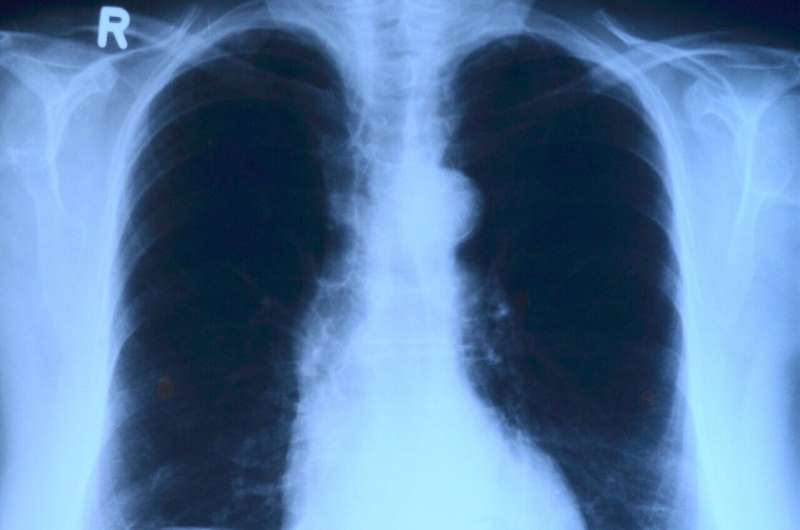This article has been reviewed according to Science X's editorial process and policies. Editors have highlighted the following attributes while ensuring the content's credibility:
fact-checked
trusted source
proofread
Machine learning uses lung cancer scans to predict heart damage

As patients with lung cancer live longer, the risk of long-term cardiac side effects of radiation therapy has been increasing, despite advances that reduce the radiation dose to the heart. New research uses machine learning to mine data from standard lung-cancer scans and predict patients most likely to have heart damage from radiation treatment later in life. If confirmed by future tests, this approach could identify at-risk patients and ensure they are appropriately monitored before their condition becomes debilitating.
Along with chemotherapy, radiation therapy remains the definitive and standard of care for advanced-stage lung cancer. During treatment, patients routinely undergo PET/CT scans to monitor the cancer over time. In a recent study, Jefferson researcher and first author Wookjin Choi, Ph.D., developed an artificial-intelligence algorithm that could re-analyze these PET/CT images and accurately predict patients with more inflammation in the heart—often a precursor of long-term damage.
The research is published in the journal JCO Clinical Cancer Informatics.
"This is the first application of functional radiomics—or using algorithms to extract quantifiable information from medical images—to predict future cardiac toxicity," says senior author Yevgeniy Vinogradskiy, Ph.D..
The researchers were careful to counteract some of the common pitfalls of artificial intelligence, such as bias and lack of clarity in how it makes conclusions. First, they trained the algorithm on data from three sources to diversify the patient images and reduce the likelihood of bias. Second, rather than use pre-written or 'black-box' algorithms, Dr. Choi wrote his own code, and winnowed the predictive features down to nine characteristics.
"Nine is a much more manageable number to troubleshoot, and because we know which features we're looking at, we have confidence that they'll be clinically meaningful," he says.
"What's exciting about this approach," says radiation oncology department chair Adam Dicker, MD, Ph.D., "is that it could provide important additional diagnostic information with no additional scans, sparing the patient extra costs and radiation exposure."
More information: Wookjin Choi et al, Novel Functional Radiomics for Prediction of Cardiac Positron Emission Tomography Avidity in Lung Cancer Radiotherapy, JCO Clinical Cancer Informatics (2024). DOI: 10.1200/CCI.23.00241




















